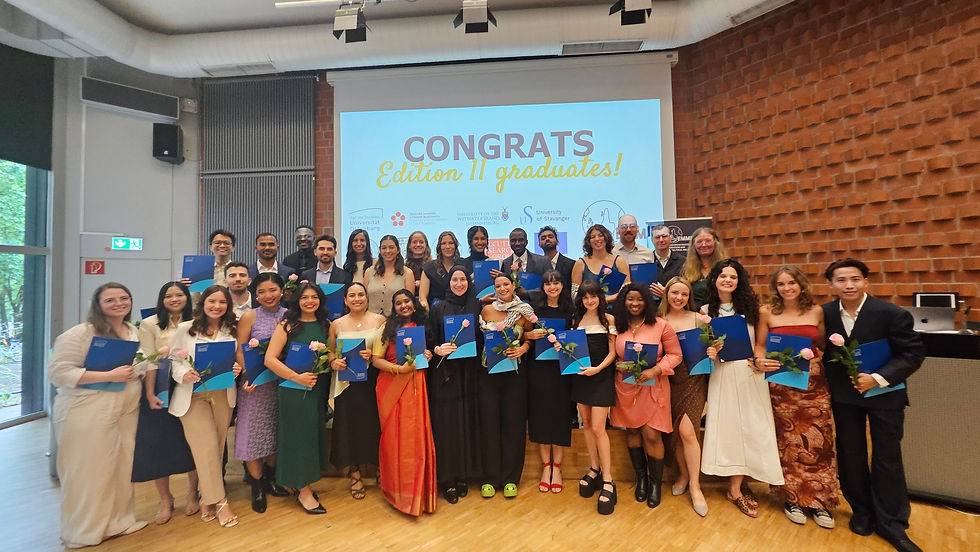Activist or academic: can you be both? Over 100 participants join 2018 EMMIR conference in Oldenburg
- Dec 20, 2018
- 2 min read
Updated: Jan 14, 2019

A topic that often elicits strong opinions from both scholars and activists, the topic of EMMIR's conference this December questioned: how we can link activism and academia?, and why we should attempt to in the first place?
One year ago, a group of EMMIR students posed those questions to professors and fellow scholars. They together decided to bring the discussion forward and invite experts from different countries and backgrounds, from different disciplines and fields, on both sides of the 'activist' or 'academic' divide (and even those who fall somewhere in between).
In December 2018, over 100 participants attended a 3-day conference at the University of Oldenburg, Germany. Students, scholars, and activists shared their expert knowledge and practical experiences during keynote sessions, panel discussions, and workshops that enabled the development of new approaches to the activist-researcher paradigm.
So, did this diverse group of conference speakers and attendees come to any conclusions? It may be impossible to ever find a consensus between academics and activists from diverse backgrounds, but the atmosphere brought forward fruitful discussion in a mutually respecting environment. Activists and academics working in migration societies often have shared goals and similar challenges, so they manage to find multiple ways of collaboration despite the boundaries.

Co-organised by EMMIR, the Center for Interdisciplinary Research on Women and Gender (ZFG), the Center for Migration, Education and Cultural Studies (CMC) and Carl von Ossietzky University Oldenburg, the conference "Linking Scholarship and Activism in Migration Societies: Critical Inquiries" explored the role of activists and academics from a wide variety of approaches. A group of 20 young researchers and students from the EMMIR network worked together to conceptualise the call for papers, decide on the formats and topics to be discussed and coordinated the selection of applicants.


The conference opened with the keynote lecture "The Structures of Knowledge of Westernized Universities, Global Structures of Power and Migration", by professor Ramon Grosfoguel (Berkeley University of California, USA). Participants looked into scholar activism at the Mexico-US border with prof. Alexandra Delano (The New School, USA), then discussed migration research approaches and the terms of engagement with prof. Aziz Choudry (McGill University, Canada). Prof. Debolina Dutta (Univesity of Melbourne, Australia) presented her experience as a researcher with sex workers in India and the double-binds associated to her role.

In parallel, panels and workshops brought together young researchers from South Africa, Sudan, Uganda, Rwanda, Finland, Canada, India, Slovenia, Germany and the US. The discussions analysed activism and academic practices around topics of asylum, gender, intersectionalism, postcolonialism and art-based research.

The conference ended with an open-floor discussion where participants and attendees were invited to voice their opinions and ask critical questions they had after three days of insightful and stirring lectures and talks.





Comments